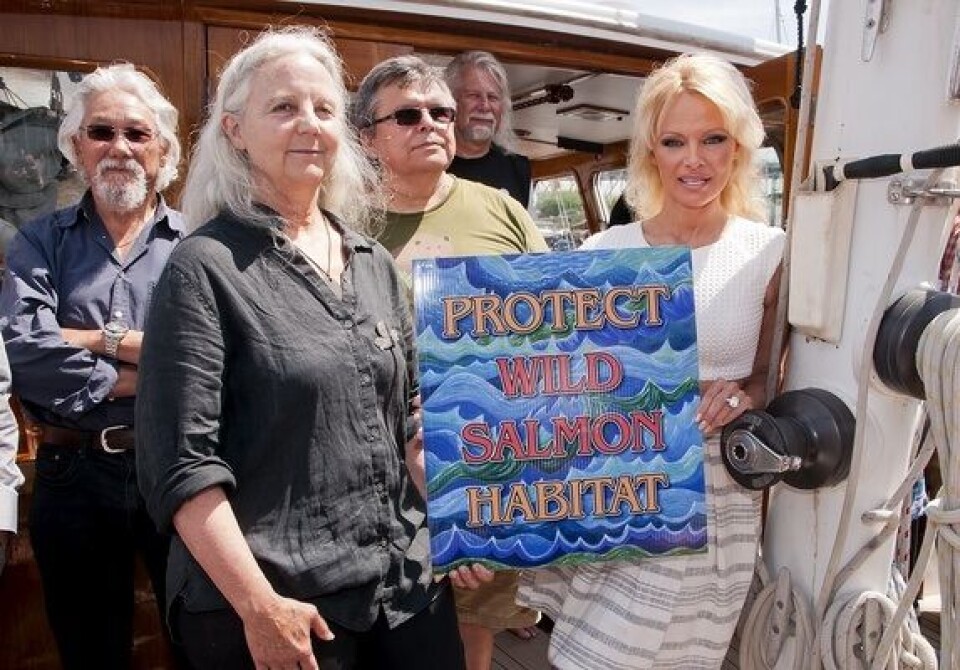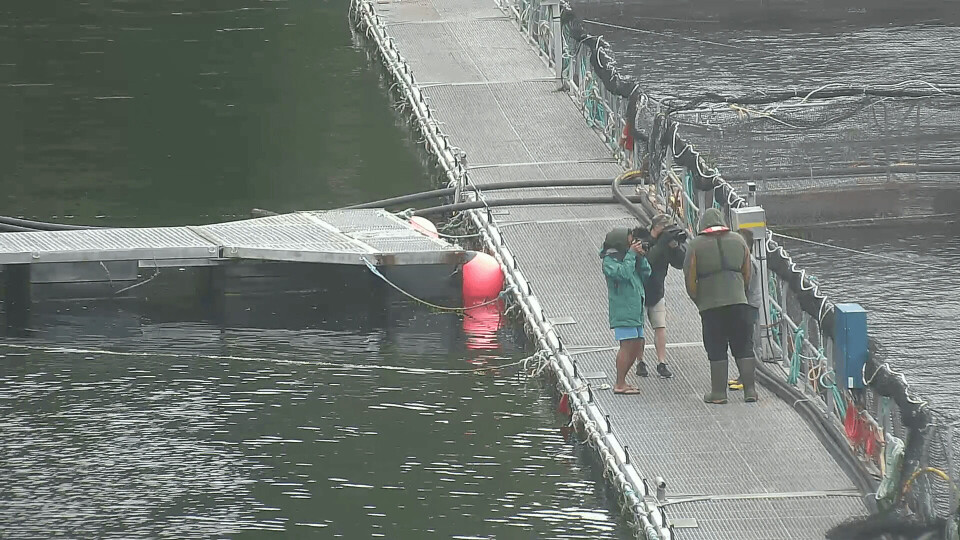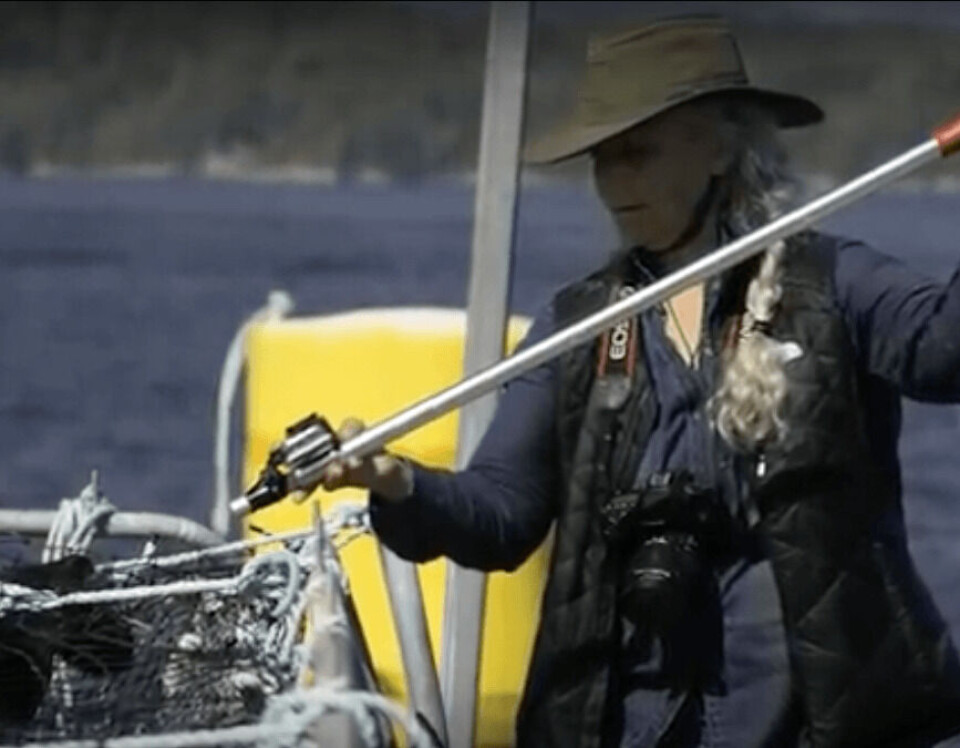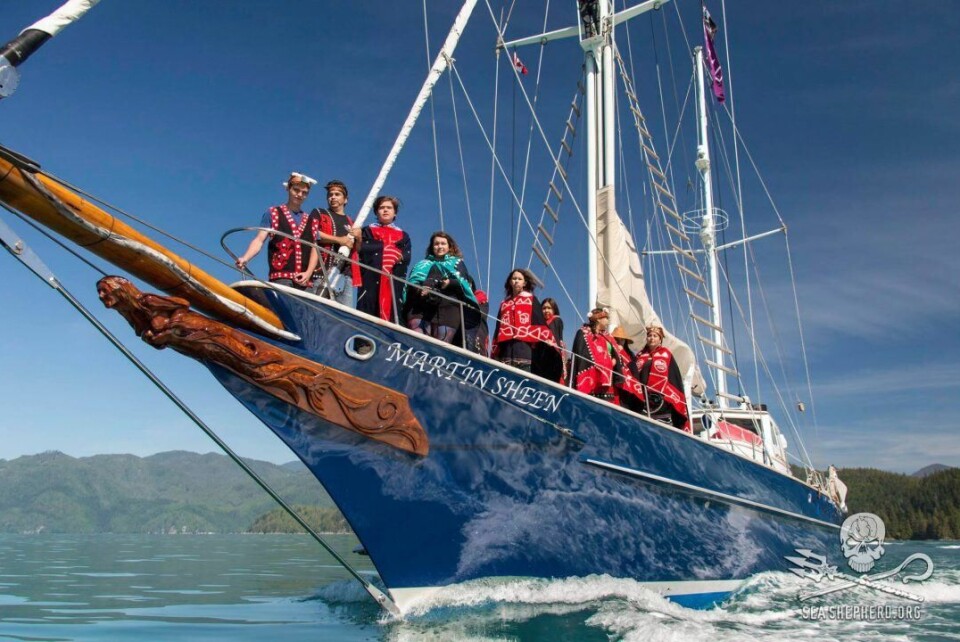
From swimsuits to lawsuits: why MH had to sue
The recent decision by Marine Harvest Canada to sue the professional activist Alex Morton was a logical and measured response to a summer which saw their employees in BC harassed - and the health of their salmon put at risk - by activists, intent on psychological manipulation of the media, posing as scientists.
At the beginning of this summer, a group of well-funded professional activists took to the eastern coast of Vancouver Island, sailing northward on a self-proclaimed “research mission” to find evidence of piscine reovirus (PRV) in farmed Atlantic salmon, in a campaign that was launched with the help of former Baywatch star Pamela Anderson.
However, this mission was never about the research, because for that to occur they would have needed: 1.) a scientist, 2.) scientific equipment, and 3.) a scientific question. This mission was lacking all three.
No, the task from the very start was to create chaos, to stir up latent emotions and to whip the residents of BC into a frenzy with the sole aim of damaging the BC salmon farming industry.
Employees were harassed, taunted, and jeered at as the crew of the Sea Shepherd research vessel Martin Sheen made their way from farm to farm, attempting to evoke some kind of response that they could use in their anti-fish farming propaganda.
The protesters would fly drones overhead, slowly sail past the windows of the employees' living quarters smirking at them, and use telephoto lenses to capture pictures of employees eating their breakfast.
When these tactics proved unsuccessful, the activists stepped up their game. Several unauthorized individuals illegally boarded farm sites, trespassing and refusing to leave, at times sometimes getting within inches of the faces of employees with camera lenses.

In absolutely no other Canadian professional workplace would the intentional and persistent harassment of employees or trespassing and tampering with private equipment be tolerated.
Yet for some reason, authorities remained on the sidelines, allowing the activists to intrude on the lives and workplaces of salmon farmers for around 3 months.
However, despite the tireless attempts by the activists, employees of Marine Harvest Canada and Cermaq Canada were nothing short of professional, polite, patient and extremely tolerant.
This must have been pretty disappointing to Morton and her crew - how else would they sell the story of “big bad salmon farmers” without a video to edit, re-arrange, and narrate within a backdrop of twinkly emotional music for the public and media to gaggle and gasp over?
Upping the ante
The activists were forced to up the ante.
In late August, a large group of protesters illegally boarded an active farm owned by MHC, and refused to leave despite the polite requests of employees. Even more astonishingly, they refused to adhere to the biosafety protocols in place, showing utter disregard or consideration for the health of the fish on site.
A video posted to Facebook (https://www.facebook.com/fishfarmsgetout/videos/1291582294199862/) shows the interaction:
“We are going to walk this farm, with or without your acceptance,” said one of the protesters, as they refused to abide by the requests of the MHC employee.
“I understand that you have taken it upon yourselves to come on board,” said the employee. “If I may ask you to just follow our biosecurity protocols and dip your feet in a Virkon solution to protect our farm and wild fish.”
“We’ve never had to worry about biosecurity stuff for our fish,” stated the protester, clearly unaware of the purpose or serious nature of biosecurity.
The video then shows over 50 people board the farm and walk the exterior, performing a “cleansing” ritual.
This was not an isolated incident.
Twice more protesters illegally boarded MHC farm sites, tampered with equipment and refused to abide by biosecurity protocols.
There is only so much harassment a company can take before they are forced to defend themselves. When it comes to the safety and health of their fish, farmers take things very seriously.
This blatant disregard for the law and the safety of the employees and fish on site forced Marine Harvest to file a lawsuit against the leader of the activist group – Alex Morton – who accompanied the First Nations group as an ‘invited guest’ to partake in the protests. On one occasion she got a Musgamagw Dzawada’enuxw band member, Melissa Willie, to open mort totes so could attempt to identify (incorrectly) rotting fish carcasses as dead Pacific juvenile salmon.
On another occasion Morton stuck a GoPro camera into a cage site and constructed her YouTube sensation “Hard Evidence”, where she shows skinny salmon (referred to by industry as ‘poor-performers’ as they are unable to compete for feed with the larger fish) and attempts to diagnose them with HSMI, or films salmon darting after something in the water and proceeds accuses the industry of using wild fish as salmon feed, et cetera.

All without consent, while trespassing on private property, and disobeying every single biosecurity protocol in place.
This sort of behavior by activists is not uncommon, and is actually quite routine for vessels and crew hoisting the Sea Shepherd Society flag, despite the initial statements by Morton that her mission would not be “harassing”.
It’s not research, it’s manipulation
By purposefully pushing the limits of the law, Morton attempted to create a story and press coverage for her campaign. And all the while, she has been achieving this by masterfully manipulating hundreds of people to join her on her crusade.
After this summer’s escapades, perhaps now the public will see her for what she is – a fanatical zealot who will do whatever she wants and use whomever she wants, to achieve media coverage.
But what is the cost of her actions? Do the First Nations people who choose to follow her activism care to know the scientific truth? Does Alex sit them down and give them the full picture of the situation? Are they aware that the information they are being spoon-fed is not supported by fact, and that perhaps they are being used for their cultural values that depend on wild salmon and the marine ecosystem?

Does the group of First Nation activists arrested a few months ago for criminally interfering with salmon farming activities on the west coast of Vancouver Island realize that what they believe in is manufactured by a woman who is associated with NGOs that have been paid in the hundreds of thousands by American trust-funds hell-bent on “demarketing” the salmon aquaculture industry in BC?
Follow the trail of funding against salmon farming in BC and it will lead you on a journey that inevitably ends up in the pockets of Alaskan wild-fishery interests (http://business.financialpost.com/fp-comment/suzukis-fish-story).
A master in manipulation
It is unlikely that her followers or the public know the whole story, and it’s also extremely unfortunate. It is causing unnecessary stress and conflict between First Nations communities and within families, and influencing the uniformed public to avoid any form of farmed fish – coincident with the “research mission”, sales of land-raised coho dropped by 30% in BC.
Whatever the production method, the healthiest, cleanest and most sustainable protein available for human consumption has been cast into a shadow of doubt by the masterful engineering of professional activism.
Are Canadians truly this gullible? Are we content to sit back and be convinced by the deliberately misinformed and heartfelt narrative of NGOs, all the while refusing to accept the facts about aquaculture? Does a well-funded and highly well-produced film depicting a selective few shots of Atlantic salmon darting after something in the water hold more merit than logic and reason?
How long will we be influenced by NGOs and activists who use fear and manipulation, rather than science and facts?























































